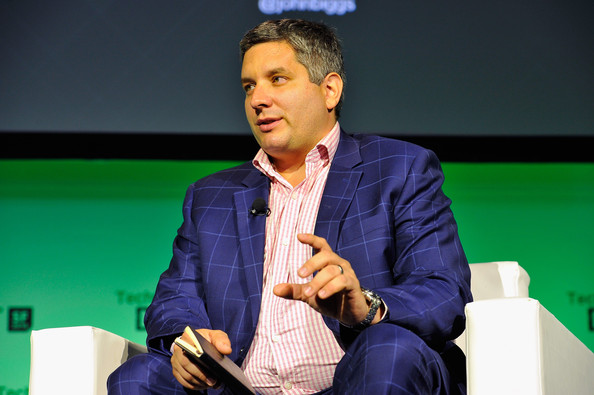
John Biggs leaves ‘Best job ever’ to run a fintech company
It’s hard to deny the brain drain to the FinTech industry occurring nowadays. And this is no surprise – the industry has been showing rapid growth recently. The overall investment in the sector reached millions of dollars and financial technology startups inconspicuously turned into red hot investments.
John Biggs, East Coast Editor of TechCrunch, has also decided to change the sphere of his activity. He is leaving the “best job I ever hard” to launch Freemit, a new platform to disrupt the business of money transfers.
So far Biggs’s career was rather straightforward – he used to write for the New York Times, InSync, USA Weekend, Popular Mechanics, Popular Science, Money and a number of other outlets on technology and wristwatches. He is the former editor-in-chief of Gizmodo.com. Although Biggs hasn’t given up publishing articles on TechCrunch, his transformation into entrepreneur has already started.
Today we “enjoy” traditional money transfer passing between multiple banks, each taking its cut of the largely automatic process. However nowadays international money transfers no longer need an intermediary.
Freemit will represent a new era a money transfers. Biggs believes in blockchain and says: “Our banks are robbing us. If you send $100 anywhere in the world, it will cost you and the receiver between $5-$17, depending on how you send it. If it needs to get there right away, you will pay even more to do it. If you can wait 3 to 4 days then you will pay less. Either way the bank wins. If it is an instant transfer the bank can charge high fees. If it takes 3-4 days, the bank gets to take advantage of the ‘float.’Э
He continues: “You may not know it, but banks can use your money to make money for even just a few days. And trust me, they do. And this doesn’t make sense anymore. Because the world has changed. There is this thing called the Internet, which changed everything. Email killed the inefficient postal service. iTunes killed the record companies. Amazon is killing brick and mortar stores. The list goes on. Every industry in the world has been transformed. Disrupted. Except banking. And except money transfer. But that is going to change. It has to change. Why has it taken so long?”
The Freemit service is quite simple in operation. Registered Freemit users and holders of Freemit credit cards can exchange any amount of money. Freemit transfers and deposits go without any fees. The company apparently will monetize the service via credit card service fees – something you would most likely pay anyway when you spend the digital cash.
Freemit published a chart comparing its services to the traditional ones. For example taking an ordinary $100 transfer:
- Chase will take $40 in fees and one to two days to deliver;
- PayPal is a bit better as the fees drop to “just” $6, but the transfer drags on for up to 5 days.
According to the World Bank, a sender loses $16 on each $200 transaction – not a small amount.
In this regard Biggs appreciated the potential of the blockchain. “Bitcoin’s blockchain technology, and the open ledger that all can see, effectively cuts out the need for central banking oversight of transfers. This makes instant money transfer something that can and should happen in the near future. Instead of complicated transfers between banks, central banks, and receiving banks, Bitcoin creates an easy, entirely digital, transparent, and trustworthy system for money transfer.”
“When it comes to foreign exchange transactions Bitcoin is set to shatter the paradigm. Banks charge 3-5% on foreign exchange transfers because they have a monopoly on this system. But the advent of Bitcoin essentially cuts out the middleman on any foreign exchange. Instead of going through banks, Bitcoin exchanges can now function as an instant, automated, and transparent exchange system. With Bitcoin the possibility now exists for the creation of a universal, instant, and cost-free system of international money exchange,” he added.
A team of professionals works in Freemit. Biggs has partnered with COO Richard Svinkin, a UX executive with several large companies on his resume and Paul Goudas, who was formerly head of high-frequency trading at a Wall Street bank. The official site is already live, while the service itself has not been launched. Freemit even offers $10 “free” if you join the waitlist.
The article first appeared in the Coinspeaker.com





